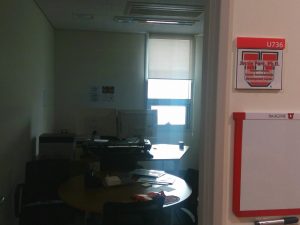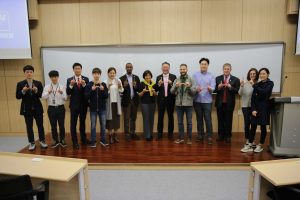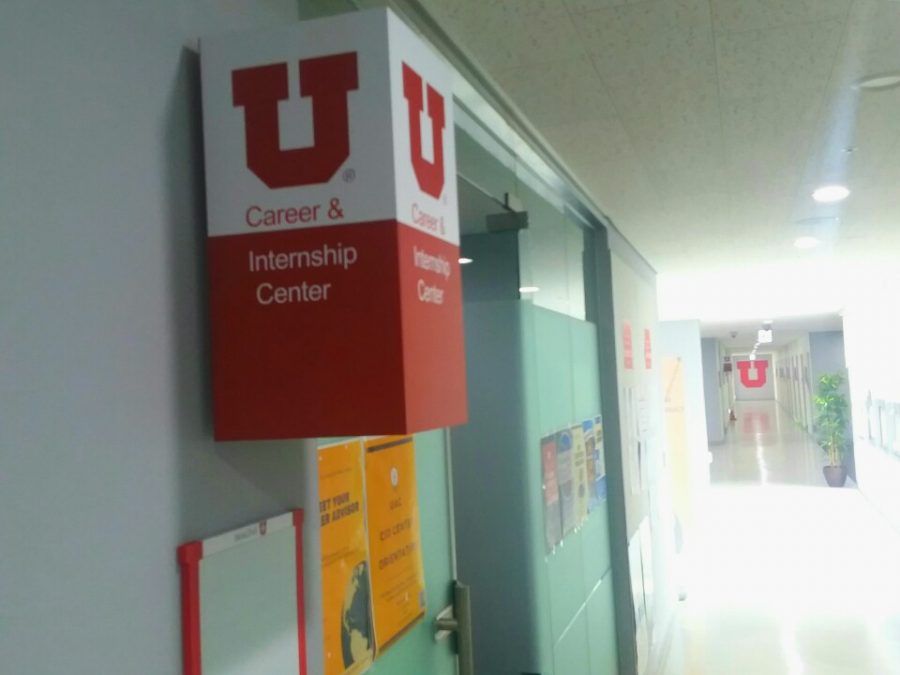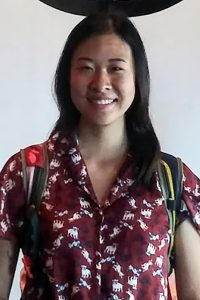Career and Internship Development Center on Asia Campus Surviving Without Director
Career & Internship Development Center at the University of Utah Asia Campus. (Photo by Mitch Shin | The Daily Utah Chronicle)
November 15, 2019
The University of Utah Asia Campus opened in September 2014, but the decision to open up the Career and Internship Development Center was made in March 2018. According to Randall McCriilis, UAC Dean of Students, the reason why the UAC did not have the CIDC until Spring 2018 was the lack of graduating students. The first graduating class at the UAC, however, did not benefit from the CIDC’s services.
The UAC officially opened the center after hiring assistant director Jinnie Park in April 2019. However, on Oct. 14, Park resigned for unknown reasons. McCrillis said that the UAC will begin searching for a new assistant director soon with the goal of having someone in place by early January, according to the email he sent to the UAC community on Oct. 15. McCrillis declined to comment on the reason behind Park’s resignation. Park also could not be reached for comment.
Park started working as assistant director in April 2018 after the first director resigned due to personal issues. Even though there is currently no assistant director at the CIDC, the career ambassadors will continue operating there until the end of the semester.
“We provide students with help on resumes, cover letters and mock interviews. We also do career assessments that can help determine what kind of jobs fit a certain personality,” said Coral Wilkin, a career ambassador at the CIDC. “The career ambassadors will self-search jobs to present to students to show [their] options.”

The UAC has suggested Handshake as a tool for finding job opportunities. McCrillis said that it is one of the preferred platforms in the U.S. However, some Korean students are having difficulties using this platform because most Korean college students use Linkedin or Saram-in — a Korean format used by most of Korea’s corporations — to find jobs.
According to a July report from the UAC dean’s office, UAC’s CIDC presented 91 counseling sessions. Some students received help building their English or Korean resume. Among the students who had counseling at the CIDC, junior students were the highest with 39.3%, followed by the sophomores with 28.6% and freshmen with 27.4%. Only 4.8% of them were seniors.
“The Career and Professional Development Center is a great resource for finding guidance as students approach graduation and real-world occupations. It is an easy and well-organized way to start planning for the future,” said Sierra Wakefield, a film and media arts major from the SLC campus. “The career center has really helped me narrow down what it is I’m interested in doing with my major, and the resources have helped guide me to my final goal. One thing I believe they could do better is on-campus advertising. That’s where students are most often and most students don’t know how much the career center really has to offer.”
Ji Eun Yang, a communications major, stated that the resume workshop the CIDC presented in September was helpful and taught her how to write a resume in Korean and English. “The workshop was presented well and organized for students to understand what they need to do on their resume.” Yang also said that she wants to attend more workshops presented by members of the CIDC.

“There is a huge demand for proficient bilingual speakers among both foreign and domestic firms. So, if they are flexible and open minded about a job prospect, Utah students should have a huge advantage when entering the workforce,” Peter Pae, Seoul Bureau Chief for Bloomberg, said during his special lecture at the UAC on April 19.
Some UAC graduate students got jobs abroad and some are interning at companies related to their fields, according to a farewell email from Jinnie Park. Although the UAC is not planning on hiring her replacement within this semester, the career ambassadors will be handling important issues for students until the UAC does.








